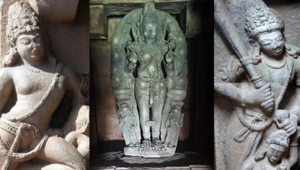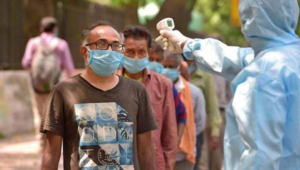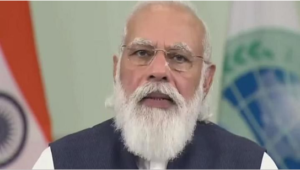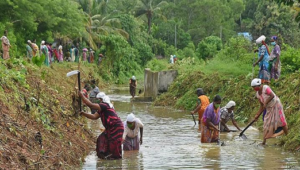
Various Committees on Centre State Relations in India
SARKARIA COMMISSION
Reason for appointment – The increase in demand for Autonomy to the states and the rise in regional parties (state parties) in 1980’s led to appointment of Sarkaria Commission
Date of appointment – 9th June 1983
Date of Submission – 27th October 1987
Name of Chairman – Justice R.S. Sarkaria
Members – B. Shivaraman
Dr. S. R. Sen
Total no. of recommendations made – 247 out of which 180 recommendations are implemented.
Major recommendations of committee:-
1. It recommended a permanent inter-state council called Inter Government Council to be constituted under Article 263.
2. It recommended that the LSG bodies need to be significantly strengthened both financially and functionally and recommended enactment of a parliamentary law uniformly applicable throughout India to give effect to this recommendation.
3. While appointing the governor of a state the Central Government must consult the CM of consumed state
4. The Governor should be an eminent person in some walk of life. He/she should be an outsider, detached from politics/should not have taken part in politics in recent past. He shouldn’t be a member of ruling party.
5. As far as possible the governor should enjoy the term of five years; should be removed before his tenure is completed only on grounds like violation of constitution/immoral behavior; during in the process of remove the State Government may be informed and consulted.
6. About Article 356 the committee stated that it should be used very sparingly and as a matter of last resort; it can be invoked only in event of political crisis, internal subversion, physical breakdown and non-compliance with constitutional directives of the centre.
7. The net proceeds of corporation tax may be shared with the states.
8. The centre must consult the states before enacting a law on a subject in the concurrent list except on emergency situations.
MADAN MOHAN PUNCHHI COMMISSION
Reason for appointment
1. Emergence of coalition government
2. Increase strength of regional parties and weakening of national parties
3. Introduction of LPG and Economic reforms
4. Increased role of States in policy making and development
Date of Appointment – 27/April/2007
Members – Dheerendra Singh
Vinod Kumar Duggal
N.R. Madhava Menon
Vijay Shankar
It made 312 recommendations
Important recommendation of committee:-
1. Consultation with states while legislating on matters in concurrent list
2. The commission recommended that the union should occupy only those subjects in concurrent list which is absolutely necessary to achieve uniformity of policy in national interest
3. The commission recommended an increased role of interstate council in the management of matters/disputes relation to concurrent/over lapped jurisdiction.
4. When a bill is reserved by the Governor for the consideration of President, he must take a decision within a specified period of time, ideally six months.
5. With respect to the office of Governor the commission recommended strict adherence/ follow up of the recommendations of the Sarkaria Commission, in addition, it also recommended that
a. The Constitution must be amended to include a procedure of impeachment of Governor on the same lines as provided for impeachment of President in Article 61 of the Constitution
b. The phrase “During the pleasure of the President” in Article 156 should be substituted by an appropriated procedure under which the governor is given an opportunity to defend his position.
6. With respect to Article 356 the committee recommended that suitable amendments must be made to the article to incorporate the guidelines set forth by the Supreme Court in Judgment of SC. SR Bommai (vs) Union of India.
7. The committee recommended equal representation of states in Rajya Sabha irrespective of their population and size
8. The committee recommended that the centre may consider withdrawing Armed Forces Special Powers Act from north east
9. It proposed that the centre should have power to deploy its forces in case of communal violence without states consent for a short period of one week.
10. It recommended introduction of good governance as a directive principle
11. It recommended the formulation of a national policy for compensation in cases of acquisition and Sub sequential displacement
1ST ADMINISTRATIVE REFORMS COMMISSION (ARC)
Chairman – Morarji Desai
It formed a study team to study and recommend on centre-state relations headed by M.C. Setalvad
It formed a study team to study and recommend on centre – state relations headed by M.C. Setalvad
The commission has made 22 recommendations to improve centre – state relations. It ruled out constitutional amendment and opined that the existing provisions are sufficient to regulate federal tensions.
Important recommendations:
1. Establishment of interstate council
2. Delegation of power to the maximum possible extent to the states
3. Appointment of non political persons having wide experience in public life and administration as a Governor of state.
4. It recommended that the residuary powers of legislation related to taxation must be exclusive to the parliament and other residuary subjects may from a part of concurrent list.
5. To ensure uniformity on basic issues of national polices with respect to the subjects of a proposed legislation consultations may be carried out with the State Governments individually and collectively
6. In order to improve centre-state relation in the country it suggested economic liberalization and transfer of more finances from centre to state.
JUSTICE RAJAMANNAR COMMITTEE
Appointed in 1969 by Tamilnadu Government; it submitted report in 1971
Important recommendations made are
1. It demanded readjustment of Schedule – 7 of constitution in favour of state
2. It recommended that residuary powers must be vested in states
3. It recommended constitution of interstate council
4. It recommended deletion of Article 356 and Article 357 from the Constitution
5. Abolition of All India Services
6. Planning committee must be replaced by a statutory body
ANANDPUR SAHIB RESOLUTION
In 1973 the Akali Dal Party adopted the Anandpur Sahib resolution through which it demanded , greater autonomy to the states by restrict the centre’s authority to 5 subjects
1. Defence
2. Foreign Relations
3. Communications
4. Railways
5. Currency
Other important demands were
1. Vesting of Residuary powers in state
WEST BENGAL MEMORANDUM-1977
Recommendations
1. The word Union in the Constitution should be replaced with the word Federal
2. The centre’s Jurisdiction must be restricted to only defense, foreign affairs, communications and economic coordination.
3. Deletion of Articles 356,357 & 360
4. Abolition of All India Services
5. States must be given equal representation in Rajya Sabha
6. 75% of Revenue raised by centre should be allocated to the states
NATIONAL COMMITTEE TO REVIEW WORKING OF CONSTITUTION
Appointed in 2000 by Atal Bihari Vajpayee Government
The committee repeated many of recommitted made by Sarkaria committee and made the following important recommendations
1. Establishment of interstate trade and commerce commission
2. The Governor should be appointed by a committee comprising PM, Union Home Minister, Speaker of Legislative Assembly and the CM of the concerned state.
3. In case of a political breakdown, the state be given an opportunity to explain its position.
2nd ARC
Headed by – Veerappa moily
Appointed by – UPA – 1
The committee submitted 15 reports out of which 1 report was on financial management between centre and states












